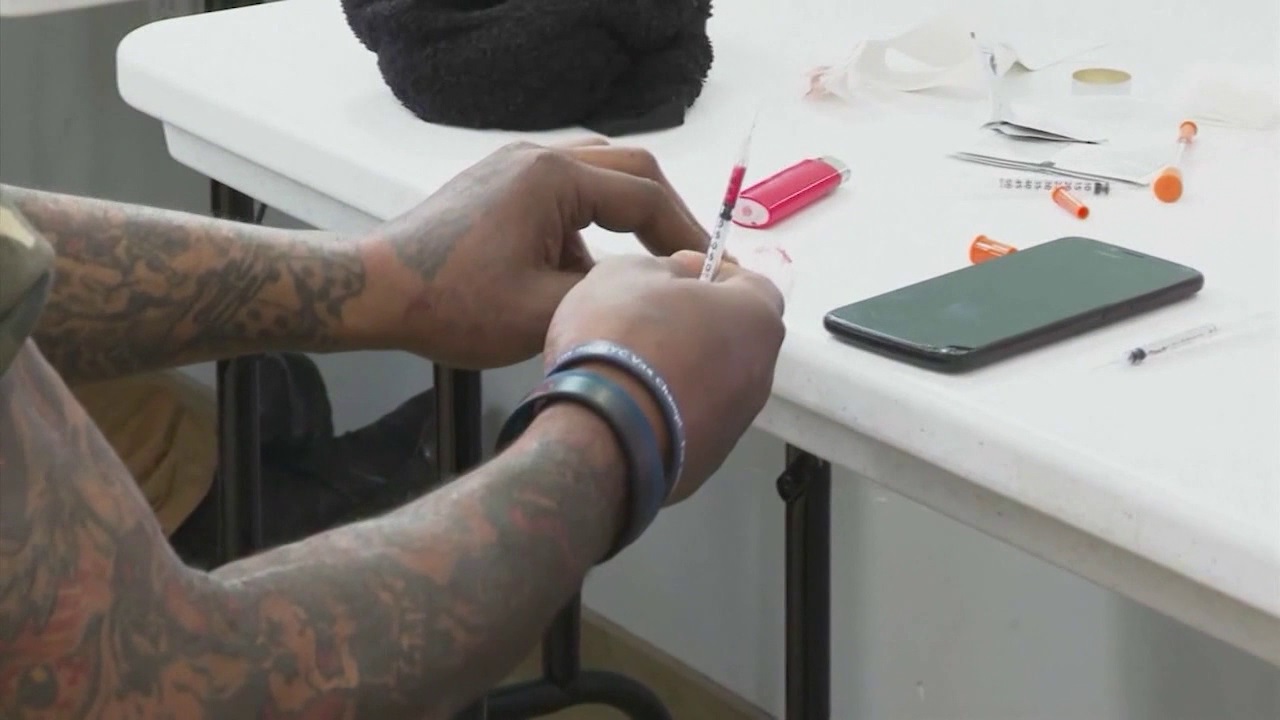Lurie Children's Hospital tackles teen substance abuse with treatment, prevention programs

Chicago hospital tackles teen substance abuse with treatment, prevention programs
Through treatment and prevention, Lurie Childrens Hospital is working to combat substance abuse in teens. During National Prevention Week and ahead of summer break – when experts typically see a spike in young people doing drugs – doctors are raising awareness about the dangers of drug use in adolescents.
CHICAGO - Through treatment and prevention, Lurie Children's Hospital is working to combat substance abuse in teens.
During National Prevention Week and ahead of summer break – when experts typically see a spike in young people doing drugs – doctors are raising awareness about the dangers of drug use in adolescents.
Data from Ann & Robert H. Lurie Children’s Hospital of Chicago shows 90 percent of people with addiction began using substances in their teen years. Plus, one in seven high school students use opioids without a doctor's prescription, according to the Centers for Disease Control and Prevention (CDC).
As the school year ends and summer begins, experts warn that teens and young adults are more likely to experiment with drugs and alcohol.
"It might be a time where they try new things, it might be a time without the structure – where their mental health might get worse," said Dr. Maria Rahmandar, medical director, Substance Use & Prevention Program (SUPP) at Lurie Children’s Hospital. "We also see that around festival time, Lolla, youth are trying substances and might end up in the ER."
Rahmandar said those substances include opioids and other pills or powders. She added that the danger of illegal drugs being laced with fentanyl is still a top concern.
"Really mixing any substances can increase your risks of an overdose," said Rahmandar. "Fentanyl is certainly the most deadly thing that we’re seeing now, but any combination can be deadly."
Rahmandar said teens and young adults typically start to dabble in illicit drugs by getting them from friends but tells FOX 32 Chicago that social media is also playing a role.
"Through Snapchat and things like that; they access so many things in life through social media. This is another way that teens are getting substances," said Rahmandar.
Doctors, therapists, and social workers at Lurie Children’s Hospital Outpatient Center, located at 1440 N. Dayton Street, treat patients up to 25 years old for substance use disorders. They accept new patients up to 21 years old.
In addition to treatment, a crucial part of what they do – as highlighted by the REACH Program and the Substance Use & Prevention Program (SUPP) – is prevention training.
That includes distributing and teaching young people and their parents how to use the life-saving opioid overdose medication, naloxone, along with test strips that detect the presence of fentanyl.
Rahmandar said drug use in teens is not completely avoidable and urges the utilization of harm-reduction tools.
She also encouraged parents who keep prescription pills or cannabis products at home to store them safely.
"Another tip for parents who might have substances at home, keep them away from young children and pets, but also locked from teenagers," said Rahmandar.
Let’s Talk Cannabis supplies lockable pouches for safe drug storage.
"You put in a code, and then you can lock these zippers," said Rahmandar.
The hospital’s outpatient center on Dayton Street provides the safe storage pouches and other life-saving resources free of charge.
Lurie Children’s Hospital also facilitates a virtual meeting for youth in recovery on a weekly basis. SMART Recovery’s 4-Point Program is open to teens between the ages of 13 and 17. It’s not required to be a Lurie Children’s Hospital patient to participate. The program serves teens with addictive behavior, helps motivate them, and offers mental health support.
This weekend, the Chicago Fire Football Club is partnering with Lurie Children’s Hospital to bring awareness to National Adolescent Health Month.
It is hosting a fundraiser to benefit the Lurie Children's Hospital Division of Adolescent and Young Adult Medicine by donating $5 from every ticket purchased for this Saturday’s match.
Learn more by clicking HERE.

